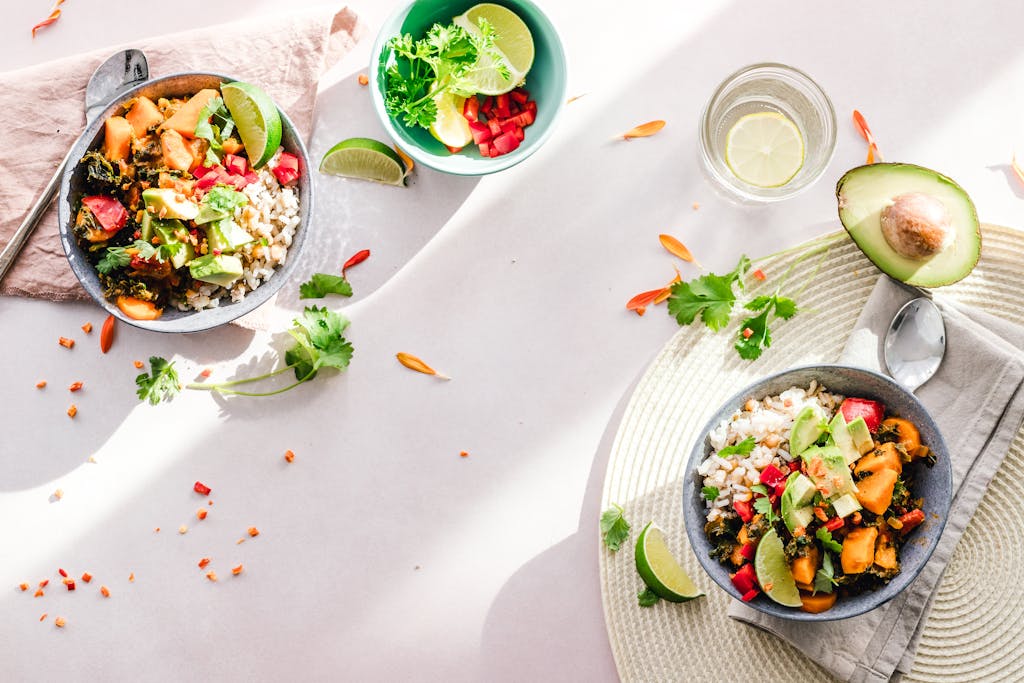Your colon plays a crucial role in digestion, absorbing nutrients, and eliminating waste. Maintaining colon health is vital for overall well-being, especially when it comes to preventing digestive issues like constipation, bloating, and more serious conditions like colon cancer. One of the best ways to support your colon is by incorporating nutrient-dense, fiber-rich foods into your diet. In this guide, we’ll explore the top foods you should eat to promote a healthier colon and improve your digestive health.
1. Leafy Greens: Nature’s Digestive Powerhouses
Leafy greens like spinach, kale, and collard greens are excellent sources of fiber and other important nutrients like vitamins A, C, and K. They are rich in antioxidants, which help reduce inflammation and improve overall gut health. The fiber in leafy greens also supports healthy digestion by adding bulk to your stool and promoting regular bowel movements. Including more leafy greens in your diet can improve colon function and help maintain a clean, healthy digestive tract.
2. Whole Grains: A Fiber-Rich Friend
Whole grains, such as brown rice, oatmeal, quinoa, and whole wheat, are packed with fiber. This type of fiber is crucial for colon health because it helps regulate bowel movements, reducing the risk of constipation and promoting regularity. Whole grains also contain essential nutrients like magnesium and B vitamins, which play a role in digestive health. By choosing whole grains over refined options, you’re not only supporting your colon but also fueling your body with long-lasting energy.
3. Berries: Sweet and Full of Antioxidants
Berries like blueberries, strawberries, raspberries, and blackberries are rich in fiber and antioxidants. They help promote a healthy colon by supporting the balance of good bacteria in your gut. The fiber in berries aids in digestion by pushing waste through the colon and improving bowel movements. Their high antioxidant content also helps fight inflammation and protects the cells in the colon from damage. Adding a handful of berries to your diet every day can have a significant impact on your overall gut health.
4. Legumes: Beans, Lentils, and Chickpeas for Gut Health
Legumes such as beans, lentils, and chickpeas are excellent sources of both soluble and insoluble fiber, which are essential for colon health. The soluble fiber helps regulate blood sugar and cholesterol levels, while insoluble fiber adds bulk to stool, preventing constipation. These plant-based proteins are also rich in folate, iron, and other nutrients that support overall digestive health. Regularly incorporating legumes into your diet can help keep your colon clean and reduce the risk of colon-related diseases.
5. Fermented Foods: Probiotics for a Balanced Gut
Fermented foods like yogurt, kefir, sauerkraut, kimchi, and miso are packed with probiotics—beneficial bacteria that help maintain a healthy balance of gut flora. A balanced gut microbiome is key to promoting good colon health. Probiotics support digestion, reduce bloating, and improve the overall functioning of the digestive system. Regular consumption of fermented foods helps populate your colon with good bacteria, which can improve immune function and reduce inflammation in the gut.
6. Cruciferous Vegetables: Cancer-Fighting Superfoods
Cruciferous vegetables such as broccoli, cauliflower, Brussels sprouts, and cabbage are known for their cancer-fighting properties. They contain compounds like sulforaphane, which help protect the colon from harmful substances and reduce the risk of colon cancer. These vegetables are also high in fiber, which promotes regular bowel movements and helps eliminate toxins from the digestive system. Including more cruciferous vegetables in your meals can improve colon health and reduce inflammation.
7. Nuts and Seeds: Small But Mighty
Nuts and seeds, including almonds, flaxseeds, chia seeds, and walnuts, are great sources of healthy fats, fiber, and antioxidants. These small but powerful foods promote gut health by providing essential nutrients that support the colon’s natural processes. Flaxseeds and chia seeds, in particular, are rich in omega-3 fatty acids, which have anti-inflammatory properties that can help reduce inflammation in the gut. Adding a handful of nuts or a tablespoon of seeds to your diet daily can support digestive health and boost your overall well-being.
8. Garlic and Onions: Natural Prebiotics
Garlic and onions are rich in prebiotics, which serve as food for the good bacteria in your gut. These vegetables help maintain a healthy gut microbiome by encouraging the growth of beneficial bacteria. Prebiotics are crucial for gut health because they enhance digestion and improve nutrient absorption. Including garlic and onions in your meals can also support immune function and reduce inflammation in the digestive tract, making them essential for maintaining a healthy colon.
Takeaways for a Healthier Colon
Maintaining a healthy colon is about more than just eating fiber-rich foods. It’s important to focus on a balanced diet filled with whole, plant-based foods that support your digestive system. By incorporating these colon-friendly foods into your diet, you can promote regular bowel movements, reduce inflammation, and lower your risk of colon-related diseases. For optimal results, pair these dietary changes with regular exercise, hydration, and other healthy lifestyle habits to keep your gut and colon functioning at their best.
Disclaimer
The information provided in this article is for educational purposes only and is not intended as medical advice. Always consult with a healthcare provider or nutritionist before making any significant changes to your diet, especially if you have pre-existing health conditions or concerns. These dietary recommendations may not be suitable for everyone, and personalized guidance from a professional is recommended.




